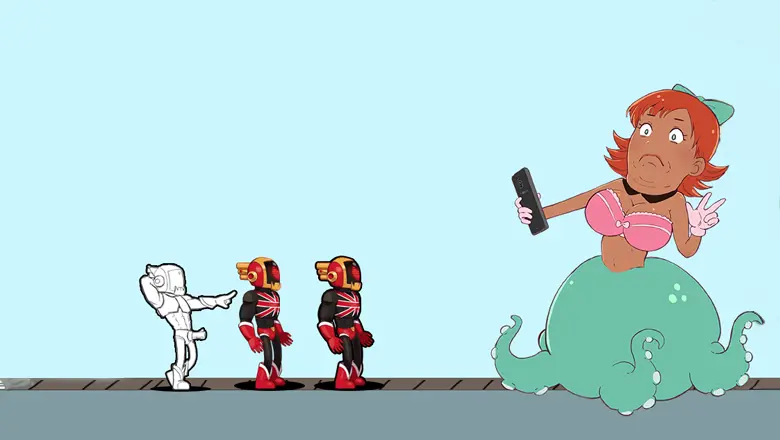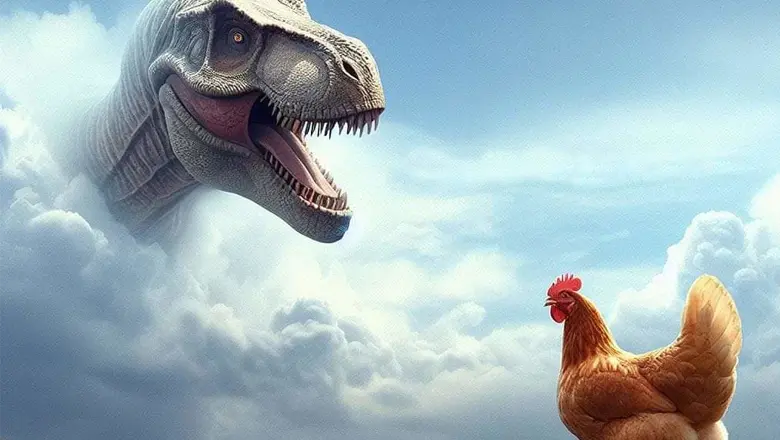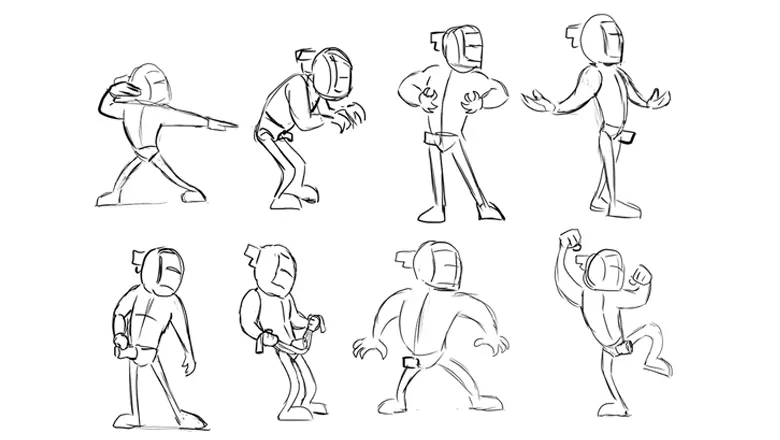To make a game is akin to running a marathon through a minefield. It's long, arduous, and fraught with potential setbacks. However, for those with a passion for game development and storytelling, it's a journey worth embarking on.
In the vast expanse of indie game development, guidance can often seem as elusive as a glitch-free launch day.
Yet, after years of navigating the tumultuous waters of indie development myself, and conversing with numerous successful developers, I've distilled essential wisdom into ten top tips for indie game developers.
This isn't your run-of-the-mill advice; it's a blend of hard-earned lessons and insider insights.
TLDR: By reading this article, you will learn:
- Start with a small project to avoid overwhelming yourself.
- Get feedback early and often to improve your game.
- Don't be afraid to fail, and start marketing early.
- Keep your tasks reasonable, this will keep your spirits up.
- Releasing your game is the goal! Stay on target so you can make a game that we can all be proud of.
Start with a Small Project
Embarking on your indie game development journey with a massive, open-world game might seem like an ambitious first step. However, it's akin to trying to climb Mount Everest before you've learned to hike. My first project was a colossal fantasy RPG, and it quickly became a quagmire. The scope was my enemy.
Focus on a small, manageable project. This doesn't mean your game can't have depth or innovation, but rather, it should be something you can realistically complete. A smaller scope allows for learning, iteration, and most importantly, finishing. Think of it as building your skills and portfolio.
Make a Game You’d Want to Play
In the labyrinth of game development, it's easy to lose sight of why you started. I've seen many developers attempt to chase trends, only to burn out on projects they had no passion for. Making a game you’d want to play ensures that you stay motivated and engaged throughout the development process.
When you make your game remember that you enthusiasm for your project is infectious. To make a game well, it will not only keep you driven but also attract players who share your interest.Authenticity in game design is palpable and often leads to a more cohesive and engaging game.
Get Feedback Early and Often
One of the most challenging aspects of indie game development is tunnel vision. You're so close to your project that it's sometimes hard to see its flaws. Early in my career, I hesitated to share my work, fearing criticism. This was a mistake.
Be sure to integrate feedback loops early in your development process when making your game. I cannot stress this part enough, to make a game is a very similar process to creating any work of art, it is the journey that is important not only the final product.
The earlier you get input from others, the quicker you will be able to turn over bad ideas to allow for your great ideas to rise to the top.
Share your game with a trusted circle of fellow developers, friends, and eventually, your target audience. Use platforms like itch.io for early releases. Constructive criticism is invaluable and can help pivot your game in the right direction.
Don’t Be Afraid to Cut Features
Every feature and mechanic in your game should serve a purpose. In my early days, I was guilty of feature creep, continuously adding new ideas to my game, which only led to a bloated, unfocused mess.
Be ruthless in your editing on your indie game development journey; If a feature doesn't enhance the core gameplay or narrative, cut it. This not only sharpens your game's focus but also reduces development time and complexity.
Cutting features can act as that icing on the cake to help you stay motivated.
Use Placeholder Art and Sound
Many indie developers, myself included, get caught up in the aesthetics of their game early on. However, focusing on final art and sound too soon can be a trap, leading to wasted resources when game mechanics change.
Use placeholder art and sound assets during the early stages of development. This allows you to focus on gameplay and mechanics first. There are numerous resources available for temporary assets, which can be replaced with final versions once your game's design is solidified.


